Bakkt Appoints Board Member Andy Main as New CEO Ahead of Financials
Bakkt stock jumps as leadership transition aims to capitalize on custody firm's turnaround.
 Alex
Alex
In 1986, a baby boy was born in Shaoyang, Hunan.
Don't get me wrong, this baby boy was not one of the top five Chinese beauty bloggers, Daniel Lu, but the richest man in Hunan in the future, Fried Cat (Jiang Xinyu).
It is not an exaggeration to say that he is the richest man in Hunan.
According to incomplete estimates, Fried Cat has 74,715 bitcoins in his two known bitcoin wallets. According to the price of nearly $100,000 per bitcoin in November 2024, Fried Cat's assets are 54.9 billion yuan, making him the richest man in Hunan.
However, Fried Cat may not live to see the day when he becomes the richest man.
Kaomao has been a top student since he was young. In 2001, at the age of 15, Kaomao was admitted to the junior class of the University of Science and Technology of China with a score ranking 11th in the country, becoming the pride of all Shaoyang. To this day, his name is still on the honor roll of his alma mater, and he is admired by his juniors.
In 2009, 23-year-old Jiang Xinyu published a paper titled "Constructing a Secure Thread Mechanism with Formal Methods", graduated with a master's degree, and went to Yale University for a visiting scholar and doctoral degree in 2011.
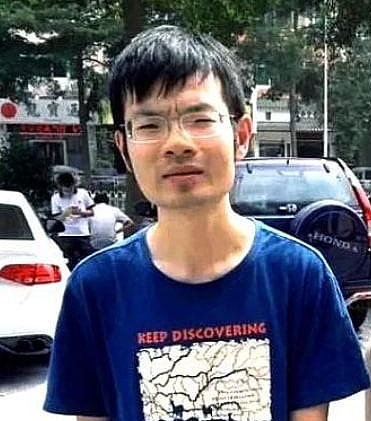
No one knew that Kaomao's trip would bring a huge revolution to the Chinese Bitcoin market.
Speaking of Bitcoin, it can be traced back to a small circle that was born in 1992.
That year, a crypto-anarchist group was born. At a gathering, Timothy May, an electronic engineer at Intel, published the "Crypto-Anarchist Manifesto", formally proposing the concept of crypto-anarchism.
The first sentence of the manifesto seems familiar to us:
"A ghost, the ghost of crypto-anarchism, is wandering in the modern world."
The core idea of crypto-anarchism is to avoid harassment, monitoring and reporting when sending and receiving information on computer networks through the application of cryptographic software, and strive to defend privacy and political freedom.
With religious piety, they decided to create a new digital technology with decentralization as its spiritual core and SHA256 algorithm as its foundation to fight against state regulation and commercial monopoly in modern society.
They firmly believe that this technology can subvert human society:
"Computer technology will soon enable individuals and groups to communicate and interact with each other in a completely anonymous way.
... Combined with the emerging information market, crypto-anarchy will create a liquid market for all materials that can be expressed in words and pictures.
Get up, crypto-anarchists, you will lose only the wire fence!"
Speaking of it, although this view is very much like the wishful thinking of idealists, in fact, they have really changed our lives.
Because Sir Tim Berners-Lee, the inventor of the World Wide Web, Bram Cohen, the author of BT download, Sean Parker, one of the founders of Facebook, Julian Assange, the founder of WikiLeaks, etc., are all members of this group.
Of course, it also includes Satoshi Nakamoto, the founder of Bitcoin.
Who is Satoshi Nakamoto? It is unknown. Until now, computer genius hackers and intelligence organizations from all over the world have not been able to dig out the true identity of Satoshi Nakamoto, so that some people suspect that Satoshi Nakamoto is a time traveler from the future.
It has to be said that Satoshi Nakamoto has not revealed his mysterious identity until now, which is very crypto-anarchist.
In 2008, the global financial crisis broke out. On November 1 of the same year, Satoshi Nakamoto published his white paper "Bitcoin: A Peer-to-Peer Electronic Cash System", telling the world: "I am developing a new electronic currency system that is completely peer-to-peer and does not require the intervention of a trusted third party."
Thus, Bitcoin, an electronic currency that can be controlled by no political or financial forces, began to be known.
This also means that crypto-anarchists can have their own central bank and build their own financial system.
In order to verify his theory, at 18:15 on January 3, 2009, Satoshi Nakamoto mined the first block of Bitcoin on a small server in Helsinki, Finland, known as the "Genesis Block", and received the first mining reward - 50 Bitcoins.
At this point, Bitcoin was officially born, and Satoshi Nakamoto became the "creator".
Satoshi Nakamoto soon announced the mining algorithm, and a group of technical geeks began to mine on the servers of various universities, and the number of Bitcoins increased rapidly.
But the problem soon came, how to prove that Bitcoin has the function of currency? In other words, how to prove that Bitcoin can buy things?
On May 18, 2010, a cryptographer named Laszlo Hanyecz in Florida, USA, posted a post online, willing to use 10,000 Bitcoins to buy two pizzas, on the condition of meeting in person.
You heard it right, 10,000 Bitcoins, according to the current market value, is about 7 billion yuan.
But at that time, everyone thought it was a joke and no one paid any attention.
It was not until four days later that a British man, holding the idea that "two pizzas are not worth the loss, and you can't be cheated", ordered two pizzas and sent them to Hanyez's home, and got the 10,000 bitcoins, and Laszlo quickly ate the two pizzas worth 7 billion yuan.
Since then, May 22nd of each year has become the "Bitcoin Pizza Day" in the currency circle to commemorate the first commercial transaction of Bitcoin.

After the pizza incident, the value of Bitcoin began to be recognized by the world, Bitcoin transactions were born, and prices began to rise.
Soon, this way to make money was noticed by the Chinese.
Interestingly, the first group of people in China to come into contact with Bitcoin were not the most technologically sensitive geeks in universities, but the non-mainstream people with messy hair in small towns:
game leveling.
In 2010, the most popular game in China was "World of Warcraft", and behind World of Warcraft, there is a whole industry chain of leveling, competition, gold farming, equipment, dungeon farming, etc. Countless non-mainstream people in their teens can get a few dozen yuan for a hard work after staying up all night. If they are lucky, they can get good equipment and sell it for hundreds or even thousands of yuan.
Suddenly, in some QQ groups for power leveling, some advertisements for recruiting mining appeared. You only need to install a software, and the computer will automatically mine, which generally does not affect your game. Then you can get coins the next day, and then sell Bitcoin to the collectors at a price of 2-3 yuan per coin. Generally, 10 Bitcoins can be mined in one night, which at least covers the food money for one day.
So, Bitcoin was developed in a very down-to-earth way in the hands of this group of non-mainstream people in China who knew nothing about crypto-anarchism.
These non-mainstream people in strange costumes had no idea that the string of code they sold casually would be so valuable in the future.
However, these first-generation miners soon faced a business crisis because mining technology was innovated at the end of 2010.
According to Satoshi Nakamoto's setting, Bitcoin is in a utopian ideal state of "everyone is the central bank", so anyone with a CPU can mine. All you need is an ordinary computer and a software to start your mining journey.
However, this decentralized situation was soon broken because GPU entered the industry.
We all know that mining is very dependent on computing power. At the beginning, everyone used CPU mining, but with the in-depth study of mining algorithms, everyone found that mining was repeating the same work, and the CPU, as a general-purpose computing unit, is not good at parallel computing at all. It can only execute a dozen tasks at most at a time, and mining is too slow.
On the contrary, GPU has thousands of stream processors, which are inherently suitable for mining and are obviously more efficient.
Satoshi Nakamoto did not agree with GPU mining at first. He even proposed to reach a gentleman's agreement to artificially limit GPU mining to maintain the "fair state" of mining.
However, Satoshi Nakamoto still underestimated human nature.
When Bitcoin has value, naturally there will be people who want to make money from it.
As Hanyez opened his optimization algorithm based on GPU mining (now you know why he has 10,000 bitcoins?), the computing power of the entire Bitcoin network has increased exponentially, and the unit has quickly jumped from MH/s to GH/s. Originally, at most a dozen bitcoins were mined a day. After using GPU, the mining output increased sharply, and it is not a dream to produce hundreds of bitcoins a day.
So, China's non-mainstream people began to rush into Internet cafes with good graphics cards, which confused the owners of Internet cafes and indirectly led to the first large-scale upgrade of graphics cards in Chinese Internet cafes, and also solved Huang Xiaoming's Nvidia crisis.
Graphics card mining has been popular for two years and has encountered challenges again.
In June 2012, the ASIC mining machine of Butterfly Labs in the United States was successfully developed, bringing a new mining revolution.
ASIC mining machines use ASIC chips as the core of computing power. In simple terms, it is an ASIC chip customized for Bitcoin's SHA256 algorithm, which can be exchanged for higher performance, lower energy consumption, and smaller size.
Let's compare. The current high-end 4090 graphics card has a mining capacity of 129.8MH/s after optimization and a power consumption of about 322W. What about the mining machine Ant S9? The mining capacity is 13.5TH/s! It is several orders of magnitude higher!
Whoever has a mining machine has the power to "mint coins".
At Yale, Friedcat heard about the research and development progress of Butterfly Labs and keenly smelled the opportunity to make money.
The generation born in the 1980s grew up reading Readers. Readers once told a story that during the San Francisco Gold Rush, due to the fierce competition, few gold diggers made money, but those who "sold shovels" to them in the mines made a fortune.
Friedcat thought, why can't I be the one who sells shovels?
So, almost at the same time as the success of Butterfly Labs, Friedcat posted a post on the Bitcointalk forum under the ID of Friedcat, claiming that he had the ability to develop mining machines and publicly raised funds from the community.
According to the financing plan of FriedCat, he dropped out of Yale and founded BitQuan Information Technology Co., Ltd. The company's equity was divided into 400,000 shares, each worth 0.1 bitcoin.
No one realized that this was the first ICO (Initial Coin Offering) in the history of the world's currency circle.
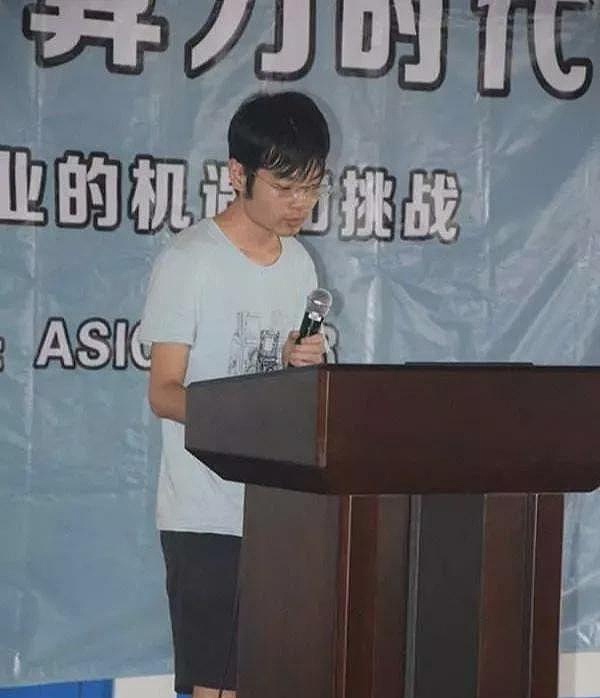
FriedCat not only raised funds online, but also went on roadshows to promote its mining machines. In the end, FriedCat successfully raised 16,000 bitcoins, which was about 1 million yuan at the time. Among them, the person who invested the most was a 26-year-old young man named Wu Jihan, who invested a total of 15,000 bitcoins.
With money, things are easier. The development of the mining machine of Friedcat went very smoothly. In just two months, it launched its own product-the first generation of Friedcat mining machine.
Friedcat took the first generation of mining machines and set up a mining farm in its own company warehouse for trial. As a result, once it was turned on, it accounted for 51% of the world's Bitcoin computing power!
In other words, at least in early 2013, 51% of the world's newly produced Bitcoins were from Friedcat!
At its peak, the number of Bitcoins mined by the "Friedcat Mine" in a month was as high as more than 40,000!
The huge success of the Friedcat mining machine triggered a collective panic in the currency circle. After all, there are only 21 million Bitcoins in total. If they were all mined by Friedcat, what would others dig?
So, hacker attacks followed one after another.
In order to disperse the hatred, FriedCat only retained 20% of the computing power of the entire network, and sold all the excess mining machines.
At that time, no mining machine could compare with FriedCat. Although the mining machine of Butterfly Lab was successfully developed, it was not mass-produced. The Avalon mining machine developed by Zhang Nangeng, a doctor from Beihang University, which was also developed by Chinese, had not started to supply. Therefore, in the ASIC mining machine market, FriedCat was the absolute king.
At that time, people from all over the world came to China to buy FriedCat mining machines in groups. Some people recalled that "some even threw money directly, picked up the mining machine and ran away, fearing that the mining machine would be snatched away."
In this way, in half a year, FriedCat made more than 1 billion yuan, and at this time, FriedCat was only 27 years old.
Baomao has a dream. He wants an island that does not belong to any country, has no army or police, and on this island, the currency is Bitcoin. It is a free paradise for crypto-anarchists.
However, before he could earn enough money to buy the island, his dream was shattered in advance.
The mining machine is too profitable, which naturally attracted countless competitors.
In June 2013, the mining machine of Butterfly Labs was finally mass-produced. In July, the Avalon mining machine also began to be shipped one after another. What about Baomao? Because it could not get TSMC's 55nm chip, the second-generation mining machine was not successfully developed, causing the computing power of the Baomao mine to drop to 4% of the entire network.
It was not until January 2014 that FriedCat launched its third-generation mining machine BE300. It was originally thought that it could return to its peak, but this chip had a series of burnout accidents due to packaging problems, which eventually completely ruined FriedCat's mining machine road.
At the end of 2014, FriedCat disappeared and no one saw him again, and the 74,715 bitcoins in his Bitcoin wallet were also missing.
The legend of FriedCat ended from then on.
Around August 2017, a total of 17,600 bitcoins were transferred out of FriedCat's two wallet accounts in one week. On November 12, 2024, FriedCat's Bitcoin account, which had been silent for 7 years, woke up again and transferred out another 206.34 bitcoins, worth 18.12 million US dollars.
Are these transfers actually made by FriedCat? Or are they controlled by others? Is FriedCat still alive? No one knows.
Everyone only knows that the Bitcoin pioneer who wore a wrinkled T-shirt during the roadshow but had a bright look in his eyes will never come back.
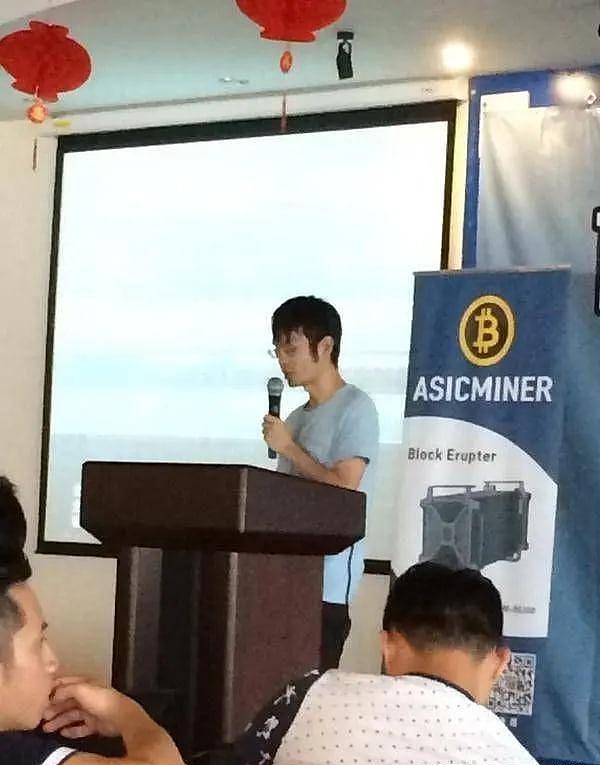
贰
FriedCat's company is not going well, and the major shareholder Wu Jihan who invested in him can only find another way out.
At this time, Wu Jihan is no longer the rookie who just started out, but a big boss with tens of millions of assets (Dividends from FriedCat).
Because he is optimistic about Bitcoin, Wu Jihan still hopes to do mining machine business, so he thought of a person----Chang Jia.
Chang Jia is a pseudonym, which is not well known to most people, but it is well-known in the science fiction circle.
We all know that Liu Cixin is the first person in Chinese science fiction. From 1999 to 2006, he won the highest award of Chinese science fiction, the Galaxy Award, for 7 consecutive years.
So who won the Galaxy Award in 2007 and 2008?
Chang Jia.
Coincidentally, Chang Jian is also from Hunan. His real name is Liu Zhipeng. He has liked Chuci since he was a child. He especially likes the chivalrous and romantic spirit in Qu Yuan's "Nine Chapters", "wearing a long sword, a crown that cuts through the clouds, and a bright moon and a precious jade", so he named himself "Chang Jian".
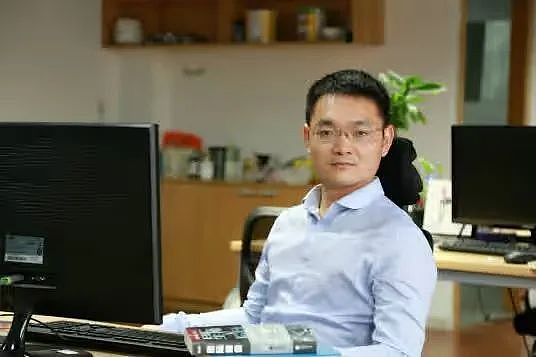
In reality, Chang Jian is also a passionate idealist. At the age of 16, he began to write science fiction novels. Articles such as "Kunlun", "Highway 674", "Fusang's Wounds", "Dragon Slaying Skills", and "If Ma Kai Was Still Alive" were published one after another, making him famous.
Some people commented: "His works are intertwined with modern and historical, and his classical works are full of heroic and sad songs, while his modern works gradually reveal the beautiful western wind." After winning the Galaxy Award, many people regarded him as the successor of Liu Cixin.
But after 2009, Chang Qia never published a science fiction novel again.
Many people speculated that he had fallen into a creative bottleneck, but a netizen mysteriously replied in the forum: "Chang Qia is doing something very sci-fi."
Yes, Chang Qia is doing something very sci-fi - Bitcoin.
Here is a digression. If we look through the history of the Chinese currency circle, we will find that there are many science fiction enthusiasts.
For example, Chang Qia, a science fiction writer.
Xuanlian founder "Crazy Xiaoqiang", science fiction writer.
Wu Jihan, the famous "magnet", the chip he made after working alone, the name comes from the English name of "Zhizi".
How much does Wu Jihan like Liu Cixin? When he held the "World Blockchain Conference Wuzhen" in 2018, he even held a cross-border roundtable forum "Science Fiction World in Blockchain" for Liu Cixin, just to meet Liu Cixin.
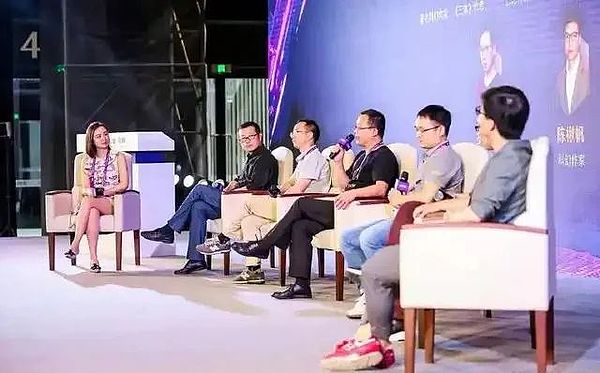
Zhang Jian, founder of Fcoin, his "Singer Capital" is also named after "The Three-Body Problem".
And so on.
Why do the science fiction circle and the initial coin circle overlap highly?
Perhaps because the two circles have a high degree of consistency, they are all sensitive to technology, delicate in emotion, and like fantasy.
Bitcoin is naturally suitable for their appetite, after all, this kind of thing is both technical and humanistic, both realistic and ideal.
Chang Qia is such a person. After he came into contact with Bitcoin in 2009, he was quickly convinced by the grand ideal behind Bitcoin. Chang Qia recalled: "The emergence of Bitcoin perfectly fits my imagination of the cloud era and the grand distributed computing project. I was quickly fascinated by it..."
In 2011, Chang Qia found a job in the system. Like Liu Cixin, he slacked off during work hours and wandered around on the Internet, specifically introducing Bitcoin to the public.
This year, a female college student asked a question on Zhihu: How should I invest 6,000 yuan?
Chang Jia gave an answer beyond everyone's cognition: "Buy Bitcoin, keep the wallet properly, and then forget it and look at it again in five years."
A few years later, Bitcoin skyrocketed. If the female college student had listened to Chang Jia's advice at the time, she would have been a billionaire.
So this reply was turned out by countless people and became a generation of "Zhihu God Post".
However, at that time, Chang Jia received not praise, but ridicule. At that time, Bitcoin was at the bottom and no one believed that Bitcoin could make money.
Chang Jia was not convinced and began to publish Bitcoin articles on his blog and debate with the haters.
One day, he suddenly received a message from a person named QQAgent: "Blogger, I think your website is very valuable. Why don't you apply for an independent domain name and space? I'll pay for it."
This QQAgent is Wu Jihan.
However, Chang Qia was unwilling to follow Wu Jihan to make mining machines because he had a deeper understanding of Bitcoin than others.
Chang Jia believes: "If you only understand Bitcoin from the perspective of investment arbitrage, you are just a passer-by in its life who is content with a small fortune; but if you understand it from the perspective of philosophy and technology, and sink into it, you will be much richer than the former in terms of wealth and spirit."
Chang Jia is unwilling to get lost in the surge and plunge of wealth, so in 2011, Chang Jia cooperated with Wu Jihan to establish Babbitt. Since then, the Chinese currency circle has its own Bitcoin media.
If Kaomao is the person who sells shovels in the gold rush, then Chang Jia is the person who sells intelligence in a pub.
However, perhaps because of excessive idealism, Chang Jia's Bitcoin career was not smooth. Both Babbitt and the later Bytom Chain were once popular, but they were fleeting.
Compared with those first-generation entrepreneurs who were of the same generation as Chang Jian but had already become financially independent, Chang Jian was obviously not so "successful".
Why do we spend so much time and effort to introduce Chang Jian's story? Not only because he is the evangelist of Bitcoin in China, but also because his Babbitt almost connected the entire cryptocurrency circle in those years.
Let's put it this way, in that wild era of Bitcoin, almost all the first-generation entrepreneurial bosses knew each other at Babbitt.
One day in 2013, a person named "GGGGG" posted a post, the core content of which was offline dating.
And the location was set in the holy land of grassroots entrepreneurs in Beijing: Garage Coffee.

That offline meeting was full of losers, but most of them became big bosses in the future, such as Shenyu, Zhao Dong, Li Xiaolai, Pumpkin Zhang, etc., and talked about the future of Bitcoin.
Since then, cryptocurrency players from all over the country have begun to frequently organize offline meetings, connect resources together, and attract people to cooperate, creating one cryptocurrency myth after another.
For example, Wu Jihan met Zhan Ketuan, who was born in integrated circuits, and jointly founded Bitmain.
Pumpkin Zhang met Li Jiaxuan and founded Beijing Canaan Creative Innovation Information Technology Co., Ltd., which later became a mining machine giant.
Li Xiaolai met Zhu Fangyi and started to build his own mining farm.
Li Lin met Du Jun and started to plan to build a platform.
Of course, there are also baked cats, and a considerable number of mining machines are also sold on the forum.
These people often gather in a small courtyard, talk all night, and then leave with great enthusiasm.
The sky is as dark as ink, the lights are dim, and the road ahead is not clear at all, but everyone is still full of enthusiasm.
Under the connection of the initial token circle enthusiasts, mining machines and mining farms on the market began to blossom everywhere, including Silverfish, Little Bee, Rand, TMR, SmarT, 42BTC, etc., marking the advent of the golden age of Bitcoin in China.
With more mining, problems also arise.
During the exchange, the biggest pain point of these first-generation entrepreneurs in the currency circle is that they have mining machines and Bitcoin, but lack a trading platform that Chinese people can control.
At that time, the world's Bitcoin transactions were mainly monopolized by two platforms, namely Mt.Gox in Japan and BitStamp in Slovenia.
And what about China? There is only one trading platform - Bitcoin China.
The founder of Bitcoin China is Yang Linke, who was originally a sauna equipment seller. By mistake, he invested tens of thousands of yuan and set up a Bitcoin China trading website.
However, this trading system is very simple, and recharge requires online banking to transfer money to two people's accounts. Their holders are Yang Linke's wife and mother-in-law - this is not science fiction at all. The key is that both domestic and foreign platforms have problems of low security and slow speed, and often charge a two-way transaction fee of 0.03%. As people in the circle complain more, naturally someone will focus on this business. So, in 2013, two new Bitcoin trading platforms were born, Xu Mingxing's OKCoin and Li Lin's "Huobi". In order to seize the market, OKCoin and "Huobi" both adopted a fee-free model, which is very similar to China's booming Internet industry. They first use the free model to circle users, and then charge after occupying the market.
With this move, Chinese Bitcoin exchanges instantly crushed international exchanges and soon occupied 80% of the world's Bitcoin transactions.
They were lucky enough to catch up with the Bitcoin bull market.
In 2012, the price of a Bitcoin was still $13, and by the end of 2013, the price had exceeded $1,000!
What kind of business in the world can achieve such huge profits? Soon countless people flocked into the currency circle, and even Chinese aunts who knew nothing about cryptocurrency joined in. The exchange was as busy as a vegetable market, and the server was once down. It took several hours to sell a Bitcoin.
Facts have proved that selling shovels does not make money, selling intelligence does not make money, and the most profitable thing is to engage in trading markets.
In this way, Xu Mingxing and Li Lin earned more money than others could earn in ten lifetimes in just one year. In 2020, both of them were listed on the Hurun Global Young Self-Made Rich List released by Hurun Research Institute.
That was really a bonus of the times. If you caught up, you would soar to the sky, and if you missed it, you would miss it.
But the good times did not last long. The hot situation of Bitcoin attracted the attention of regulators, and they began to assess the risks of Bitcoin.
On December 5, 2013, the central bank and five ministries and commissions jointly issued the "Notice on Preventing Bitcoin Risks", denying the monetary attributes of Bitcoin and believing that Bitcoin cannot and should not be circulated and used as currency in the market.
The whole market was in a state of panic, the price of Bitcoin plunged, and countless speculators' money was wiped out in an instant.
Two months later, Japan's Bitcoin trading platform Mt.Gox posted an announcement, announcing that it had been hacked, more than 750,000 Bitcoins disappeared, and the company went bankrupt.
This caused a severe panic around the world. Who knows if it was a real hacker attack or a "fake hacker who really ran away"?
Not long after, the American Butterfly Laboratory was also closed by the federal court for "suspected commercial fraud."
Since then, Bitcoin has entered a long bear market.
Zhao Dong's position was blown up in leveraged trading, losing 150 million.
Yang Linke sold most of his Bitcoins.
Baomao disappeared.
Li Xiaolai also sold his bitcoins and wanted to open a billiard hall.
In the cold winter, those players in the domestic currency circle who were shouting "Bitcoin faith" often forgot that no matter how firm their faith was, it could not defeat reality.
However, those who could persist in this long bear market received rich rewards in the future.
For example, Wu Jihan continued to improve his mining machine, maintaining 42.5% of the world's computing power in the Bitcoin winter, and later achieved the great reputation of Bitmain's "mining tyrant".
For example, Li Lin's Huobi.com believes that the policy does deny the currency attribute of Bitcoin, but does not restrict the commodity attribute of Bitcoin. Bitcoin still has investment value. Huobi.com has won two angel round investments and continues to operate.
There is also Xu Mingxing's OKCoin, which has launched a trading leverage policy. In simple terms, it uses Bitcoin as a financial product to achieve "coin speculation" through short selling and long selling, while OKCoin charges handling fees through RMB withdrawals.
There are also countless dreamers who dream of getting rich who travel all over the country, set up mines in the northern grasslands and the deep mountains of Guizhou, and started the "coin making business" with cheap wind power and hydropower.
After more than two years, they finally waited for the reward of fate.
Bitcoin's underlying technology, blockchain technology, began to attract a lot of attention after 2016. Russian genius Vitalik Buterin added smart contracts, greatly expanding the application scenarios of blockchain. Blockchain has become the new favorite of the industry, and the currency circle is hot again.
Those who persisted in this round of bull market have completely turned over.
However, it is embarrassing that new technologies are always used by scammers at the first time.
What does blockchain bring? It does not bring the spring of "crypto-anarchists", but the rampant "altcoins".
The reason is simple. There are a large number of people in the market who do not understand "crypto-anarchism" and even less blockchain, but they understand human nature.
As long as there is greed in human nature, they can use human nature to make money.
Let's think back to those years. Were there advertisements for "blockchain financial management projects" everywhere? Did celebrities recommend blockchain in live broadcasts? Even friends and relatives kept pulling you in, saying that blockchain is a new hot spot and you should get on board quickly?
In fact, they just want to make money.
Those dealers who issue messy "copycat coins" often register a shell company first, then find an outsourcing team to design a virtual currency, and give it a name like dog coin, cat coin, pig coin, eel coin, shit coin, etc., and then use the methods of hiring water army, inviting bigwigs to stand on the platform, live broadcast, etc. to blow up the project, and then attract investors to ICO, recharge transactions, and even crowdfund to buy virtual mining machines, etc.
When the dealer continues to increase the value of the currency, which can increase by 10% a day, who can withstand the temptation? Even if some people know that there are huge risks, they always bet that they are not the last one to pass the flower, as long as someone buys it, they can always make money.
As a result, they often become the leeks harvested by the dealer.
When the dealer is almost done harvesting, it will directly announce the collapse of the virtual currency, leaving a mess.
Then the dealer changes his name and does it again.
What's worse, the altcoin has become a money laundering channel for telecommunications fraud. As long as the victim transfers the money, it will become altcoin in minutes and then disappear in a corner of the earth.
In this way, the entire Chinese market has been tossed into a mess. More importantly, this method is completely beyond the supervision and cannot be supervised at all. It is very easy to be manipulated by humans. You think you can achieve wealth freedom, but in fact, you achieve the wealth freedom of others, and you are just a green leek.
In that era when altcoins grew wildly, some people became rich overnight, and more people were ruined. To put it bluntly, every profit in the currency circle and every penny earned was stained with blood.
It seems that we can no longer sit back and do nothing. We must take action against Bitcoin.
Why?
Because unlike the United States and Britain, which are built on financial capital, China is built on manufacturing. Markets like virtual currencies, in addition to stimulating speculation, have almost no role in promoting the real economy, national taxation, and consumption.
On the contrary, this kind of "copycat currency" with a foul smell is essentially a kind of capital plunder by the banker to cut leeks. It is not only not conducive to common prosperity, but it is easy to magnify people's greed. Once it collapses, it is easy to cause many social problems, and in the end, the whole people will pay for it.
At the same time, China itself is still a huge energy consumer and bears huge pressure to reduce carbon emissions. What about the mines? It is the main force of carbon emissions. Some "mines" consume millions of degrees of electricity a day. The annual electricity consumption of a "mine" in a certain place in the southwest is equivalent to the total annual electricity consumption of three cities... Such a large amount of electricity consumption has neither supported any real industry nor produced any actual value, nor has it driven employment and tax revenue. It just creates a wealth myth, which attracts more people to throw moths into the fire. Therefore, on September 4, 2017, seven ministries and commissions jointly issued an announcement, announcing a comprehensive ban on ICO, believing that it poses the risk of illegal fundraising and financial fraud. At the same time, all projects that have completed ICO are required to return investors' funds and clear all ICO-related activities within the specified time. This is the 94 incident that shook the currency circle.
As soon as the announcement was made, many altcoins went straight to zero, and some altcoin exchanges even chose to close directly.
The worst is yet to come. On September 14, 2017, the Chinese government officially issued a notice to ban cryptocurrency exchanges, requiring all cryptocurrency exchanges in China to fully withdraw from the Chinese market before September 30.
As a result, not only TC, ETH, ETC, BCH and other currencies crashed, but Bitcoin also crashed by at least 20%.
So, what should the Chinese currency circle do?
Escape.
Yang Linke sold "Bitcoin China" to a Hong Kong blockchain investment fund.
Li Lin sold all of Huobi Global's shares to Baiyu Capital.
And what about Xu Mingxing? He is the most successful one in transformation. OKCoin has gradually transformed into a company that applies and develops blockchain technology. Xu Mingxing also served as the director of the Blockchain Committee of the Beijing Youth Internet Association.
But Xu Mingxing did not expect that the future world of Bitcoin exchanges would be eaten up by his former subordinates.
This subordinate is the richest Chinese, Zhao Changpeng, who was just released from a US prison at the end of September this year.
Zhao Changpeng is from Jiangsu, born in 1977. In 1989, his mother took him to queue for 36 hours at the gate of the Canadian Embassy and finally got a visa to immigrate to Canada.
Zhao Changpeng's most intuitive impression of Canada is: I drank fresh milk for the first time!
After graduating from university, Zhao Changpeng first worked at Bloomberg, and later participated in the construction of the cryptocurrency market website Blockchain.info.
By chance, Zhao Changpeng met He Yi.
He Yi, who later became the top female in the currency circle, was originally a host of Travel Satellite TV. In 2014, she joined Xu Mingxing's OKCoin as vice president and was fully responsible for the brand building of OKCoin.
He Yi originally wanted Zhao Changpeng to advertise OKCoin cheaply on Blockchain.info, but Zhao Changpeng ruthlessly rejected He Yi.
Man, you successfully attracted He Yi's attention.
He Yi felt that Zhao Changpeng did not let personal relationships affect his decision-making and was "very professional", so he introduced him to Xu Mingxing and invited him to join OKCoin.
That year, Zhao Changpeng was 37 years old.
Zhao Changpeng, who had just joined OKCoin, did a very good job and put forward many of his own ideas on the infrastructure, custody and security of on-chain transactions. Moreover, because of Zhao Changpeng's overseas life experience, he naturally had an advantage in developing overseas markets, so he quickly grew into the vice president of OKCoin.
So far, Xu Mingxing, He Yi, and Zhao Changpeng have become the influential figures in the currency circle in 2014, known as the Iron Triangle.
However, the Iron Triangle is not iron, and Xu Mingxing and Zhao Changpeng soon fell out.
Some people say that the breakup was caused by the huge differences between Xu Mingxing and Zhao Changpeng in technology and business routes.
Others say that the breakup was caused by Xu Mingxing discovering that Zhao Changpeng and He Yi had an affair and poached his girlfriend together.
Xu Mingxing once posted a Weibo post:
"How can it continue for the couple to start a business with me alone? At that time, the company also had clear regulations that if there was a relationship within the company, one party must resign. As a senior executive, she took the lead in breaking the company's regulations. Now, talking about these things can't show her professional ethics or partnership spirit, right? In any case, without me, she wouldn't have her current marriage, and she should thank me for this."
The couple obviously refers to Zhao Changpeng and He Yi, and Zhao Changpeng was still married at the time.
When things got to this point, it was obvious that they could no longer work together, and Zhao Changpeng and He Yi resigned one after another.
Then, in 2017, Zhao Changpeng and He Yi got together again and founded Binance.
At that time, Zhao Changpeng could not have imagined that his Binance would become the world's largest trading platform in the future.
Perhaps, he should be grateful for the 94 incident.
The 94 incident was a disaster for Bitcoin China, Huobi.com and OKCoin, but for Binance, it was an opportunity to overtake on the curve.
Why? Because Binance is registered overseas, its servers are also overseas, and Zhao Changpeng himself is a foreigner, so it is naturally advantageous to take the international route. Therefore, when the bosses of other virtual currency exchanges were busy drinking tea, Binance moved its servers to Hong Kong, which turned out to be a blessing in disguise and became famous.
At that time, 80% of the world's bitcoins were controlled by Chinese people, and the 94 world scared the entire country's bitcoin holders to transfer their coins out. He Yi, who had experience in OKCoin, was well aware of the situation that the domestic market was full of LSPs, and he set up a "Binance 101 Girl Group", all of whom were fair-skinned, beautiful and long-legged. Through some marketing activities of "recharging to send girls private small gifts", they successfully attracted a large number of male customers. It seemed simple and crude, but it actually brought a large number of transactions to Binance.
In this way, after the 94 incident, the traffic of the three major exchanges, Bitcoin China, Huobi, and OKCoin, all went to Binance, using the bitcoins controlled by the whole country to forcibly make this trading platform, which had just been born for a few months, the world's virtual currency trading giant.
What is the times that make heroes? This is the times that make heroes!
By 2021, Binance has become the world's largest virtual currency trading platform. The originally "decentralized" Bitcoin has become "centralized" because of the existence of Binance.
Binance's daily trading volume can reach 76 billion US dollars, and Binance can also get a lot of commissions from it, just like a casino, whether you win or lose, the casino can make money.
And Binance not only provides trading services, but also issues Binance coins BNB by itself, plus handling fees, listing fees, service fees, etc., making a lot of money.
In January 2022, on the Bloomberg Billionaires List, Zhao Changpeng, with a net worth of US$94.1 billion (about 634.8 billion yuan at the time, second only to Musk's US$102.1 billion), overwhelmed Zhang Yiming, Zhong Shanshan, Zeng Yuqun and other bigwigs, and became the "richest Chinese".
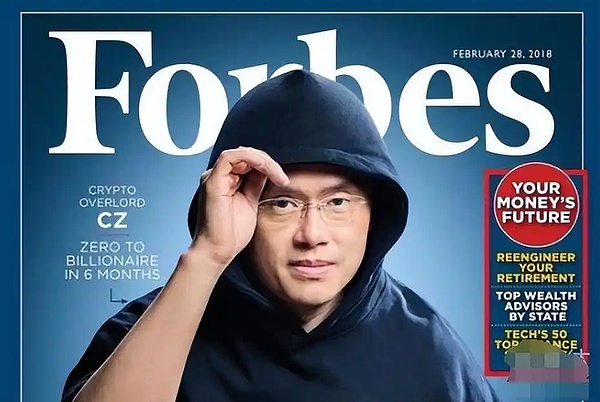
This is the first Chinese in history to be worth nearly $100 billion, and also the Chinese with the grayest business.
However, being rich does not mean safety. On the contrary, being rich may mean more insecurity.
After all, since the birth of crypto-anarchism, there has always been a sword of Damocles hanging over its head -- regulation. From the perspective of maintaining financial security and protecting investors, regulatory authorities in various countries have always been unhappy with Zhao Changpeng. American economists once listed the "seven sins" of virtual currency, namely concealment, corruption, deception, crime, fraud, price hikes, and CZ.
This CZ is Zhao Changpeng, Changpeng Zhao.
After leaving China, Zhao Changpeng's Binance wandered around the world and was warned by financial regulators in many countries, including the United Kingdom, Germany, Japan, Malaysia, South Africa, and Singapore. Zhao Changpeng did not even dare to return home and hid in the UAE for a long time, but he still could not escape the long-arm jurisdiction of the United States in the end.
In June 2023, the U.S. Securities and Exchange Commission (SEC) announced that it had filed 13 charges against Zhao Changpeng and Binance.
At this time, no one was clamoring for a "business environment". After some tug-of-war, Zhao Changpeng finally pleaded guilty to charges of suspected money laundering, unlicensed remittances, and violations of sanctions, and was forced to pay a fine of US$4.316 billion to settle.
However, even though Zhao Changpeng was so obedient, the United States still refused to let him go.
After he signed the confession in the United States, his passport was immediately confiscated, and then he was fined another 3 billion US dollars.
You see, this is the power of the national-level "pig killing plate".
In the end, with the efforts of the lawyers and the collective letters of pleas from 161 relatives and friends including his ex-wife, current wife, life partner, partner, sister and mother, the judge sentenced Zhao Changpeng to 4 months in prison.
On September 29, 2024, Zhao Changpeng was released from prison.
But it's not over yet.
In October 2024, U.S. prosecutors emphasized that Binance failed to report more than 100,000 suspicious transactions with Hamas, al-Qaeda, IS extremist organizations, etc. The Binance platform also supports the sale of child sexual abuse materials and is also a recipient of a large amount of ransomware stolen money.
In November 2024, Zhao Changpeng was sued again for the recovery of nearly $1.8 billion transferred "based on fraud."
Zhao Changpeng's legend continues, and Zhao Changpeng's lawsuit continues. Obviously, as long as Zhao Changpeng's wallet is still there, the blood draw in the United States will not end.
The "anarchist cryptocurrency" that seems to challenge the government will collapse at the first blow in the face of the government.
三
Looking back on the 10-year history of the currency circle, how do you evaluate Bitcoin?
Technically speaking, Bitcoin is neither good nor bad, good nor evil, beautiful nor ugly. It is just a program, an algorithm, and a string of mysterious codes hidden on the Internet.
Humanistically speaking, Bitcoin is a combination of individualism, liberalism, and technological determinism. It is the hope of technical geniuses and lunatics to achieve anarchy and utopian society.
However, no matter how great the ideal is, it must also withstand the gravity of reality.
For liberals, Bitcoin is the great ideal of human progress.
For those who are not interested in technology and just want to make money, Bitcoin is just a tool for making money.
Because of the lack of supervision, Bitcoin is always full of ups and downs, and there is no shortage of myths about making wealth. Due to survivor bias, people only pay attention to those who make money.
When someone brags in the circle of friends: "I accidentally made another 100 million yuan."
When someone takes a photo of a steering wheel with half of the Maserati logo exposed, and adds a caption "God will not let down those who work hard."
When more people show off a group of young models on a yacht.
Who can restrain their desires?
As a human being, you have desires, and Bitcoin can just arouse the greediest glutton in people's hearts. You can't bear it, and I can't bear it either.
Luo Jinhai, the founder of Bixu.com, once had a very vivid metaphor:
Bitcoin is the supreme ring that governs all rings. It bewitches the mind, and those who wear the ring will eventually become slaves of the Lord of Demons Sauron.
In reality, those who wear the Bitcoin ring, unless they have a very strong heart, will become slaves of this ring.
Bitcoin, as a technology created by "crypto-anarchists", is neutral in itself, but when technology and reality are combined, problems will inevitably arise when encountering human nature that is difficult to crack.
Satoshi Nakamoto can collide with the only hash value among 440 trillion, but he cannot calculate the madness of human nature.
When the greed in human nature distorts an originally neutral thing, the thing itself is no longer important. There were tulips in the past, and now there is Bitcoin. There is nothing wrong with tulips and Bitcoin, only human nature is wrong.
Therefore, when human nature cannot withstand the negative feedback of technology, regulatory intervention is very necessary.
After all, Bitcoin cannot satisfy hunger, cannot be circulated, and there is no currency anchor behind it. In addition to consuming a lot of energy to create a wealth creation myth, it brings more disasters.
Why are Chinese so keen on the currency circle?
Why are 70% of the world's Bitcoins mined by Chinese?
Why do Chinese control 50% of the world's Bitcoin market and most of the trading platforms?
Look at the stories of the big guys in the token circle who flew over the top of the mountain in an instant, but fell from the altar in an instant, and we may have the answer in our hearts.
Don't use Bitcoin to test human nature, human nature will never stand the test.
Bakkt stock jumps as leadership transition aims to capitalize on custody firm's turnaround.
 Alex
AlexAvalanche memecoin Sender's implosion amid suspicious fund movements reignites exit scam fears.
 Alex
AlexBlackRock's $100M tokenized Ethereum fund paves institutional DeFi path amid regulatory vetting.
 Miyuki
MiyukiGenesis Global, a bankrupt crypto lender, agrees to a $21 million penalty tied to Gemini Earn, settling SEC charges of securities law violations.
 Weiliang
WeiliangThe UK's FCA aims to recover $8 million for supervising stablecoins and crypto, part of a broader regulatory agenda.
 Alex
AlexStarknet has adjusted its airdrop schedule for eligible Immutable X users and pooled Ether stakers, resolving technical issues and allowing users to claim their STRK tokens in April. However, the process has faced criticism and challenges, impacting the price of STRK.
 Miyuki
MiyukiThe Nigerian High Court has ordered Binance to provide user data to the EFCC amidst allegations of criminality, impacting the cryptocurrency landscape in Nigeria.
 Weiliang
WeiliangNotcoin, a popular Telegram clicker game, is preparing for a token airdrop, attracting millions of players and introducing NFT vouchers for trading.
 Alex
AlexAethir sold $60 million of Checkers nodes in under 30 minutes, aiming for decentralization. Its low-barrier approach includes NFT licenses and easy software operation.
 Miyuki
MiyukiDespite Ethereum's recent decline, a rare CryptoPunks NFT, Punk #7804, fetched $16.42 million, highlighting the enduring appeal of digital collectibles.
 Weiliang
Weiliang